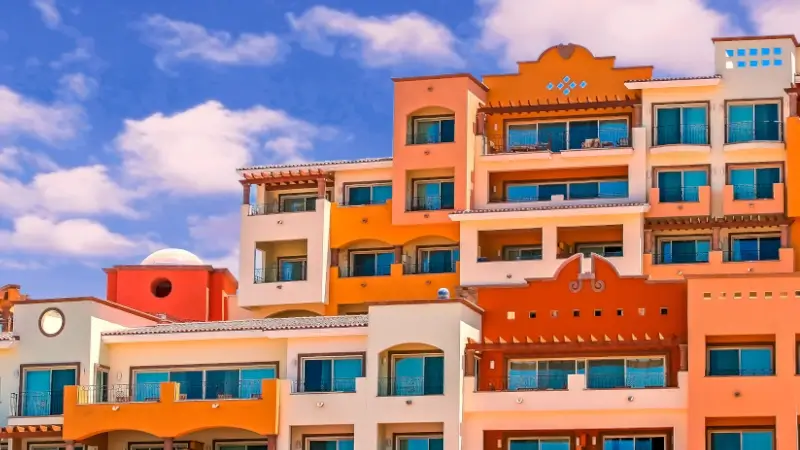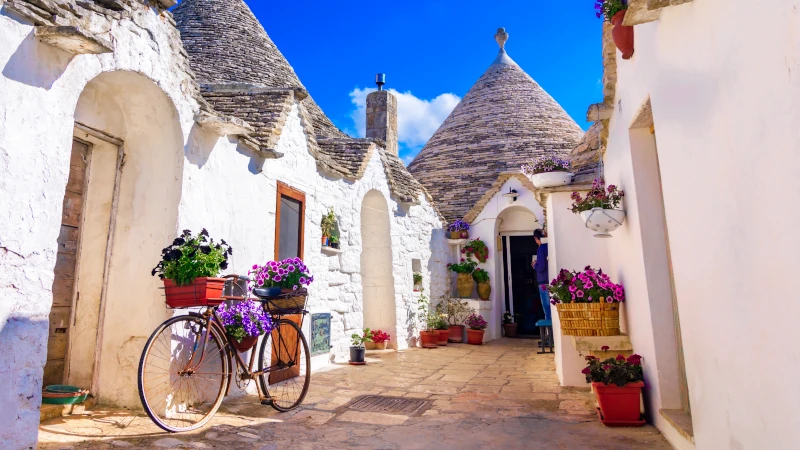Taxes In Croatia- FAQs
Croatia has a tax system that is similar to other EU countries, especially regarding value added tax, known as PDV (VAT). The standard rate for most goods and services is 25%, but there are some exceptions.
Top Destinations:
Whether you’re looking for fun and sun, a peaceful retirement, or the chance to earn some extra income, you’ve got a real world of opportunity open to you… In short, we’ve done our best to narrow down your best options, but only you can decide the right country for you.
Best For:
How Much Will It Cost You To Live Overseas?
The only honest answer is, we have no idea. And neither does anyone else. The only one who can answer that question is you. Here’s the most important thing to understand about budgeting your new life overseas…
Follow Us:
Join our Weekly Newsletter
Overseas Property Alert
Sign up for our weekly newsletter to receive expert insights on the best international real estate investment opportunities.
Upcoming Events
Access France Workshop
International Property Summit
Caribbean Virtual Conference
VIRTUAL
May 15, 2025
PANAMA CITY, PANAMA
June 18-20, 2025
VIRTUAL
July 17-19, 2025
Contact Our Events Team
Reach us with your questions by email at: events@liveandinvestoverseas.com
Unlock The World
Overseas Havens Reports
Conference Kits
Lahardan Books
Our Customer Service team is here to assist with any questions or concerns CustomerService@LiveandInvestOverseas.com
Top Destinations:
Whether you’re looking for fun and sun, a peaceful retirement, or the chance to earn some extra income, you’ve got a real world of opportunity open to you… In short, we’ve done our best to narrow down your best options, but only you can decide the right country for you.
Best For:
How Much Will It Cost You To Live Overseas?
The only honest answer is, we have no idea. And neither does anyone else. The only one who can answer that question is you. Here’s the most important thing to understand about budgeting your new life overseas…
Follow Us:
Join our Weekly Newsletter
Overseas Property Alert
Sign up for our weekly newsletter to receive expert insights on the best international real estate investment opportunities.
Upcoming Events
Access France Workshop
International Property Summit
Caribbean Virtual Conference
VIRTUAL
May 15, 2025
PANAMA CITY, PANAMA
June 18-20, 2025
VIRTUAL
July 17-19, 2025
Contact Our Events Team
Reach us with your questions by email at: events@liveandinvestoverseas.com
Unlock The World
Overseas Havens Reports
Conference Kits
Lahardan Books
Our Customer Service team is here to assist with any questions or concerns CustomerService@LiveandInvestOverseas.com
THE 10 BEST PLACES TO RETIRE IN 2025

PLUS: A SPECIAL BONUS DESTINATION
We Value Your Privacy! We will not share your email address with anyone else, period.
Home » Best Countries To Live, Invest, And Retire Overseas » Europe » Croatia » Taxes In Croatia
The Croatian Tax System for Expats
Learn more about this and other countries in our free, daily Overseas Opportunity Letter. Simply enter your email address below and we’ll send you our FREE REPORT: The 10 Best Places To Retire In 2025

Are you an American considering relocation to Croatia for work or retirement? If so, you may liable for taxes on your income or other assets while in the country.
In this article, we’ll outline some of the tax issues facing expats in Croatia and the major categories of taxation in Croatia.

Reviewed By Lief Simon
Lief Simon is the managing editor of Global Property Advisor, Simon Letter, and Offshore Living Letter. He has purchased more than 45 properties, investing in 23 different countries around the world.
Start Your New Overseas Life Today
A world full of fun, adventure, and profit awaits! Sign up for our free daily e-letter, Overseas Opportunity Letter, and we’ll send you a FREE report on the 10 Best Places To Retire In Style Overseas Today 2024
We Value Your Privacy! We will not share your email address with anyone else, period.
Start Your New Life Today, Overseas
Croatia is one of the newest members of the European Union, entering into the transnational union in 2013.
The years since the dissolution of Yugoslavia have brought many reforms to the newly-independent country, and taxes in Croatia compared to US and Western European taxation are now much more similar.
As of 2013, total tax revenues in Croatia were 26.6% of the country’s GDP.
Non-citizens living in the Republic of Croatia may be subject to taxation on both their income earned within Croatia and income from abroad. However, Croatia has double-taxation agreements with many other countries, so you may be able to reduce taxes in in Croatia for expats by taking advantage of these rules.
Tax residency status is determined according to yearly length of stay in the country. And, if you reside in Croatia for 183 days or more out of the year, you are considered a resident for taxation purposes.
You will also be considered a resident if you own or lease a home for your own exclusive use in the country, regardless of your actual length of stay.
You will generally only be taxed on income earned in Croatia, although there are exceptions to this rule. For example, business that are considered resident in Croatia are taxed on their entire worldwide income, regardless of whether the business is owned by a foreigner or not.
Non-resident companies will only be taxed on their income made within the country. You may also owe a foreign pension tax in Croatia, depending on the retirement benefits you receive within the United States.
Croatia maintains most of the familiar taxation categories. However, there are a few differences and details that expats should take note of before paying taxes in the country.
Croatia has a progressive income tax rate, divided into only three tax brackets. These are based on annual income.
Income is also subject to social security taxes, with 20% paid by the employer and 15.2% paid by the employee. These taxes pay for various public services and also apply to foreigners working in the country.
Start Your New Life Today, Overseas
Whenever a property in Croatia is sold, given or inherited, it is subject to taxation, regardless of the residency status of the parties. Both parties must pay taxes, generally at a rate of 3 percent of the property’s market value.
The transfer of real estate in Croatia does not apply to properties where value added tax (VAT) is due. Taxpayers registered for VAT must pay a 25% VAT when selling construction land and buildings, or parts of buildings, along with the land they are on.
Also, this applies if the buildings are sold before they are first occupied or used, or if no more than two years have passed since the first occupancy or use to the next sale.
Vacation or other part-time homes are also subject to annual taxation.
Any property not used for permanent living is considered a holiday home for tax purposes and is subject to taxation based on a certain amount per square meter.
Rental income is also taxed at a rate of 15%. However, there are a number of deductions that may reduce costs in both of these categories.
Croatia maintains a “value-added tax” or VAT with three different rates. The normal rate is 25%.
Reduced VAT rates of 13% and five percent apply to certain kinds of publications, medication, and foods.
Most hotels and other residences charge a tourist tax in Croatia, often around one euro per day. While this is referred to as a “tax,” it is really a kind of additional service fee imposed by businesses and tourist agencies to offset their own fees.
The basic corporate tax rate is 20%. This is a flat tax. Companies can deduct various expenses, including personal vehicles and other costs of doing business.
Croatia capital gains tax rate is now a flat 25%.
Unlike many countries, Croatia has no tax on inheritance in the first generation.
The exact determination of tax liability for cases of foreigners inheriting in Croatia can be complicated, so it may be worthwhile to consult a professional to ensure that your inheritance is really exempt from taxation.
The Croatian tax authorities issue income assessments for the year by Jan. 31 of the following year.
Tax returns are generally due by the end of February. The Croatian equivalent of the 1040 and related forms is called the JOPPD.
Payment of taxes owed and receipt of tax refund in Croatia is not currently possible via the internet, although this may soon change.
A number of personal exemptions are available, similar those found in other countries. In particular, your total tax liability will be altered by the amount of time you spent in the country, and whether your income is earned within Croatia or abroad.
Above all, consider consulting an expert on the Croatian tax system to maximize your savings and exemptions.
Start Your New Life Today, Overseas

Reviewed By Lief Simon
Lief Simon is the managing editor of Global Property Advisor, Simon Letter, and Offshore Living Letter. He has purchased more than 45 properties, investing in 23 different countries around the world.
Start Your New Overseas Life Today
A world full of fun, adventure, and profit awaits! Sign up for our free daily e-letter, Overseas Opportunity Letter, and we’ll send you a FREE report on the 10 Best Places To Retire In Style Overseas Today 2024
We Value Your Privacy! We will not share your email address with anyone else, period.
Croatia has a tax system that is similar to other EU countries, especially regarding value added tax, known as PDV (VAT). The standard rate for most goods and services is 25%, but there are some exceptions.
 . '
. '
 . '
. '
 . '
. '
 . '
. '
 . '
. '


We Value Your Privacy! We will not share your email address with anyone else, period.
As seen in

© 2008 – Live and Invest Overseas™ – All Rights Reserved.
Sign up to receive the FREE daily e-letter, Overseas Opportunity Letter and we’ll immediately email you our editors’ latest research report…
BEST PLACES TO RETIRE
FREE REPORT:
Sign up for FREE and learn how to live the good life on a modest budget, find bargain property, and more. Plus, check out our free report on the 10 BEST PLACES TO RETIRE.
RETIRE OVERSEAS AND LIVE LIKE ROYALTY
Top Countries
Budgets
Affordable
Resources
Real Estate
Overseas Property Alert
How To Become Independently Wealthy And Fund The Lifestyle Of Your Dreams
Buying Real Estate For Cashflow
Discover tips and strategies used by global property investing veterans
Explore Our Latest Posts
Learn how to invest and purchase property abroad…
Conferences
ACCESS FRANCE WORKSHOP
INTERNATIONAL PROPERTY SUMMIT
CARIBBEAN VIRTUAL CONFERENCE
Contact Our Events Team:
Toll-Free U.S. and Canada:
1 (888) 627 8834
From Outside North America:
1 (443) 599 1221
Working Hours
Monday – Friday 08:00 am – 17:00 pm EST.
Reach us with your questions by email at: events@liveandinvestoverseas.com
Store
Overseas Havens Reports
Conference Kits
Lahardan Books
Subscriptions
Free Report
THE 10 BEST PLACES TO RETIRE IN 2025

Sign up to receive the FREE daily e-letter, Overseas Opportunity Letter and we’ll immediately email you our editors’ latest research report…
We Value Your Privacy! We will not share your email address with anyone else, period.
Follow Us:
© 2008 - Live and Invest Overseas - All Rights Reserved.